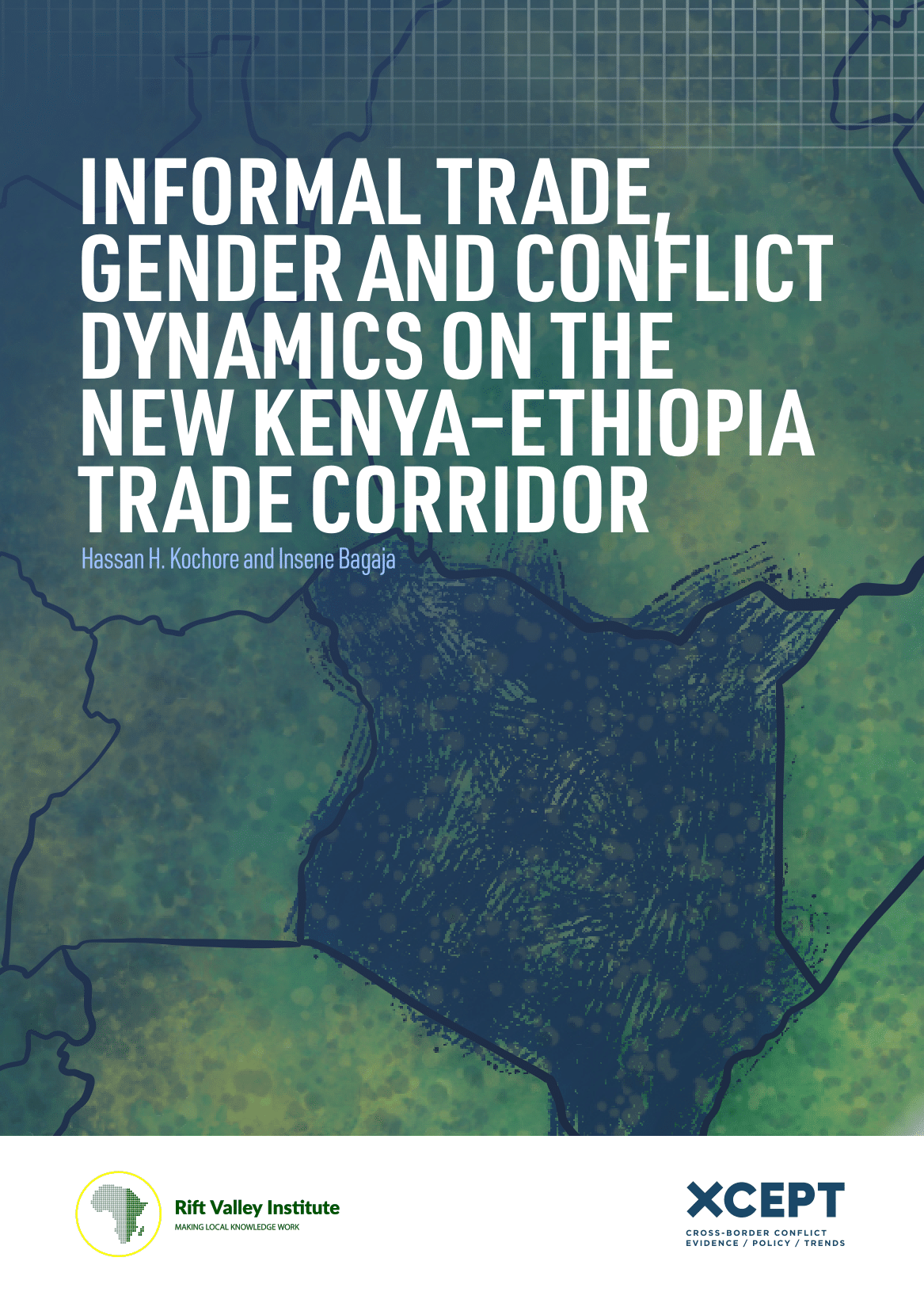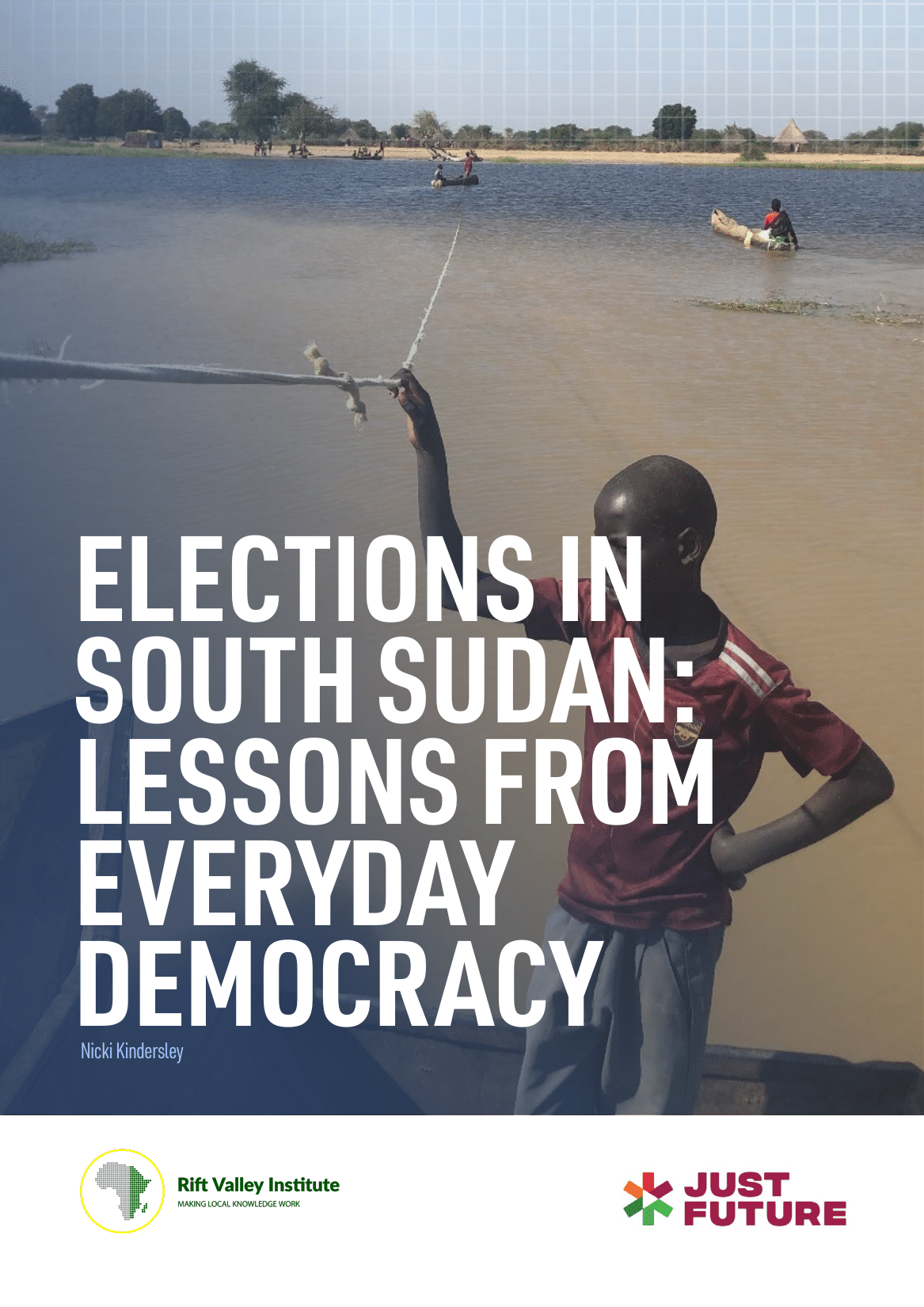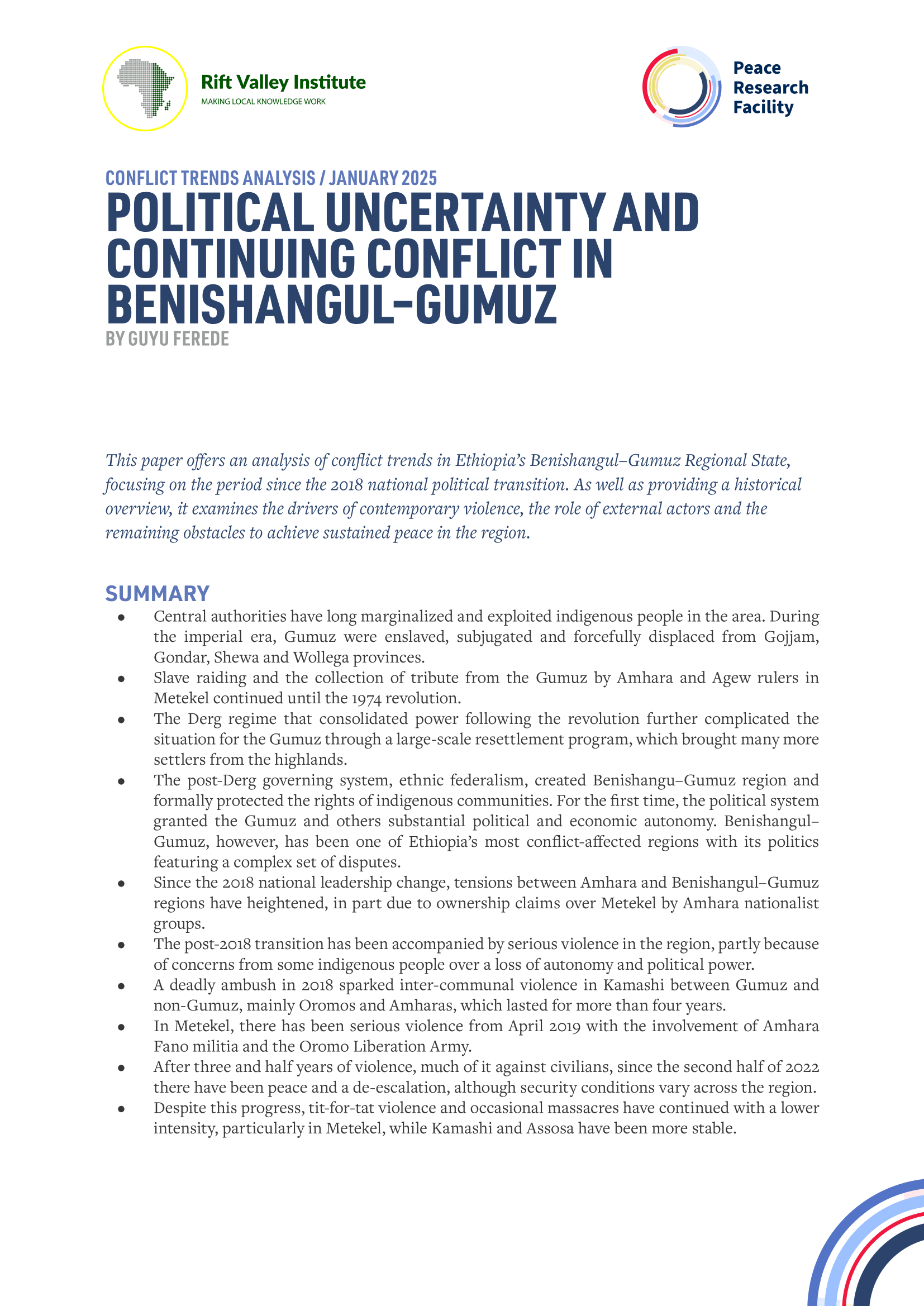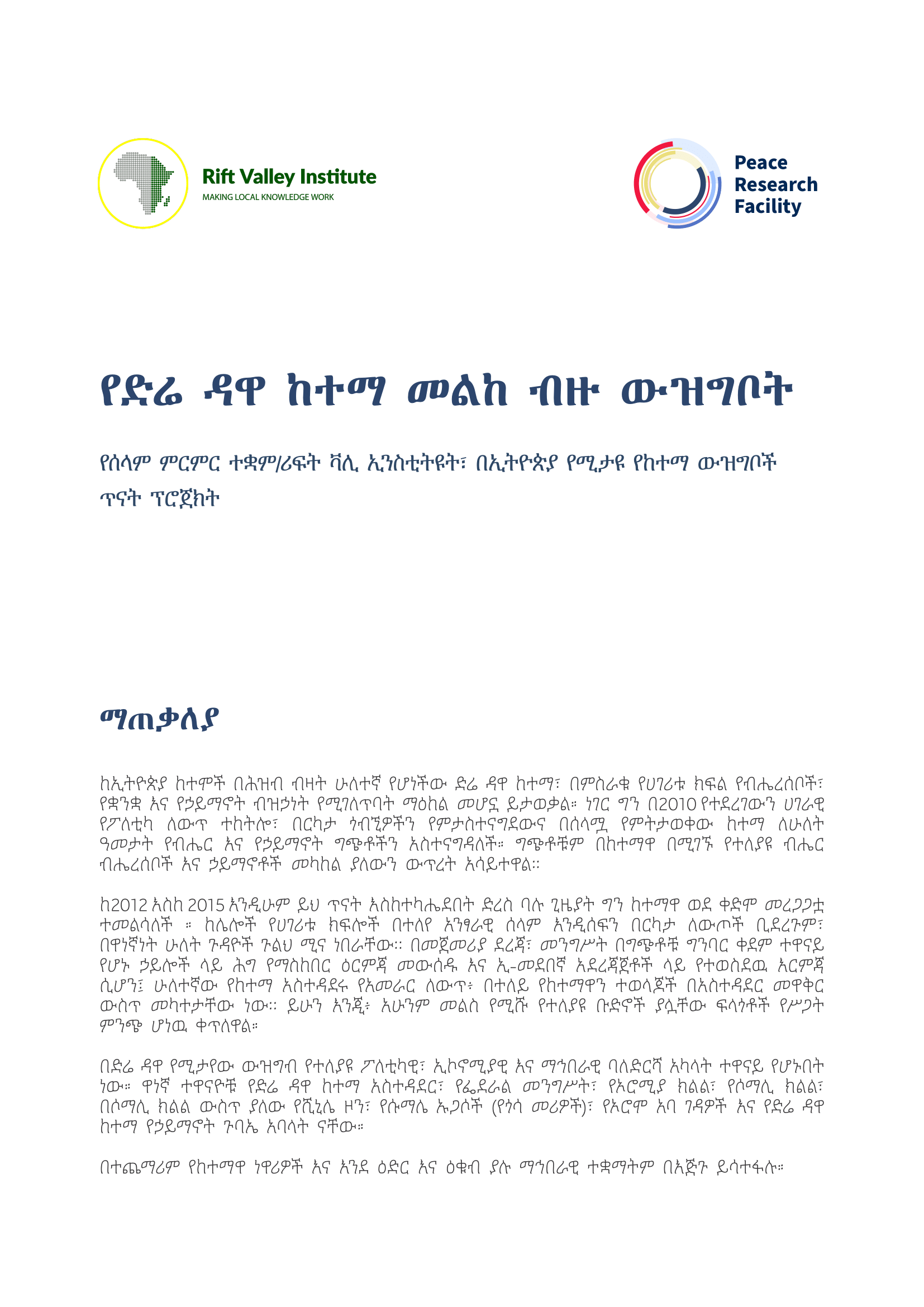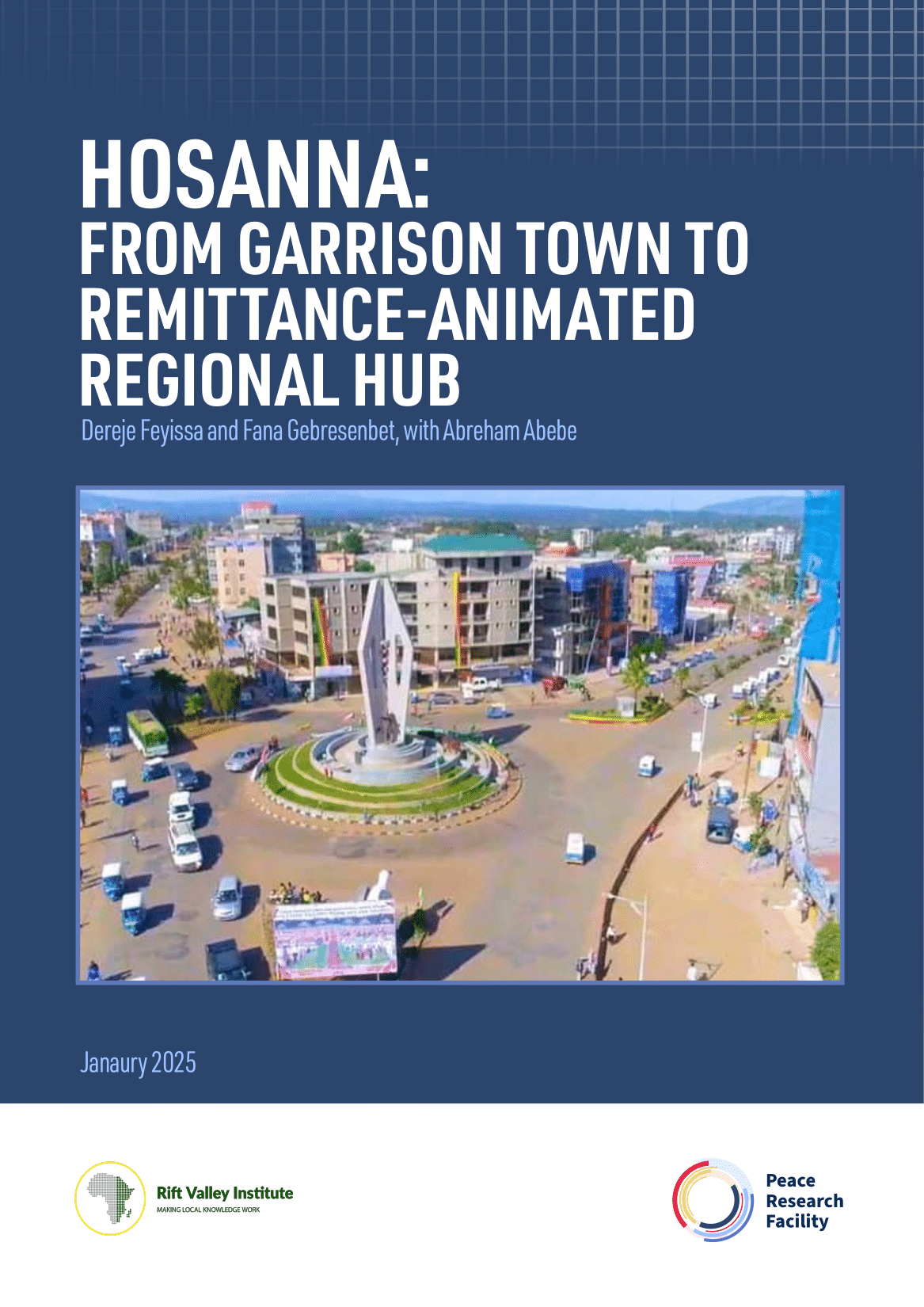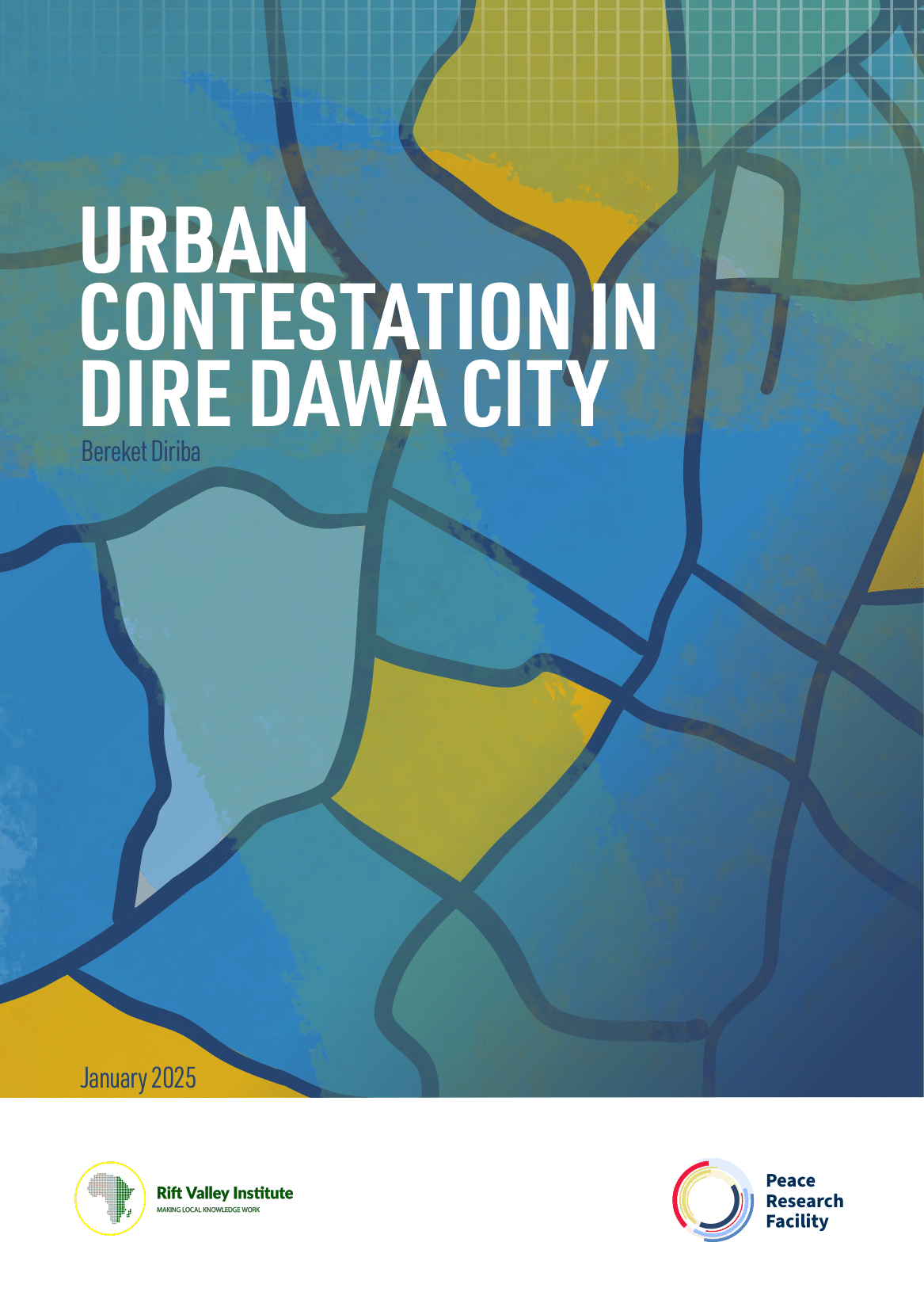This report examines the effects of infrastructure development and shifting political conditions on trade and conflict at the Kenya–Ethiopia border, including on gender dynamics. In doing so, it focuses on how small-town cross-border traders in the town of Moyale,…
RVI publishes books, research reports, research papers, briefings and meeting reports in a range of formats. Publications cover policy, research, arts, culture and local knowledge in the countries of eastern and central Africa. Research publications—books, reports and papers—are peer-reviewed. Some RVI publications are also available in French and/or Arabic.
The RVI is a signatory of the Budapest Open Access Initiative (2001); all publications are free for download in PDF format under Creative Commons licences. The views expressed in books and reports published by the RVI are those of the authors, not the Institute.
SEARCH
PUBLICATION TYPE
LANGUAGE
REGION
COUNTRY
South Sudanese people are suffering under economic and climatic crises and political stasis. The last two years have involved a rapid deterioration of basic living conditions and safety for the majority. Popular engagement with national elections must be understood…
This paper offers an analysis of conflict trends in Ethiopia’s Benishangul–Gumuz Regional State, focusing on the period since the 2018 national political transition. As well as providing a historical overview, it examines the drivers of contemporary violence, the role…

- By Robert Aharanya Claudio
- Download
This blog examines the social impact of the shifting course of the Nabek River in Kakuma refugee camp where, when the river overflows and changes direction, it sweeps away homes, forcing refugees to migrate internally. By Robert Aharanya Claudio…
ከኢትዮጵያ ከተሞች በሕዝብ ብዛት ሁለተኛ የሆነችው ድሬ ዳዋ ከተማ፣ በምስራቁ የሀገሪቱ ክፍል የብሔረሰቦች፣ የቋንቋ እና የኃይማኖት ብዝኃነት የሚገለጥባት ማዕከል መሆኗ ይታወቃል። ነገር ግን በ2010 የተደረገውን ሀገራዊ የፖለቲካ ለውጥ ተከትሎ፣ በርካታ ጎብኚዎችን የምታስተናግደውና በሰላሟ የምትታወቀው ከተማ ለሁለት ዓመታት የብሔር እና…
ይህ ጽሑፍ አዲስ በተቋቋመው የማዕከላዊ ኢትዮጵያ ክልላዊ መንግሥት ውስጥ በሀዲያ ዞን በምትገኘው ሆሳዕና ከተማ ለሀብት ባለቤትነት እና ቁጥጥር የሚደረግ ውዝግብ ላይ የተደረገ ጥናት ሪፖርት ነው። ጥናቱ የከተማዋን መስፋፋት ተከትሎ በቀድሞ በተወሰኑ ቡድኖች ተይዞ የነበረው የማኅበራዊ እና ኢኮኖሚያዊ ኃይል ተገለው…
Dereje Feyissa and Fana Gebresenbet, with Abreham Abebe This report offers a case study of the contestation for ownership and control of key urban resources in Hosanna, located in the Hadiya zone of the newly formed Central Ethiopia Regional…

- By Youniyas Abdurahman Seliman
- Download
This blog explores how water scarcity affects women and girls, especially in their daily tasks, safety and health in Kakuma refugee camp, which is located in Kenya’s hot and semi-arid Turkana region. By Youniyas Abdurahman Seliman Introduction As climate…

- By Tamanji Logodi
- Download
The research for this blog found that locally led women’s microfinance groups provided financial security and opportunities for refugee women who could not get funds from banks or NGOs. By Tamanji Logodi Introduction Originally a temporary home for South…
Dire Dawa, the second-most populous city in Ethiopia, is known as a melting pot of ethnic, language and religious groups in the east of the country. In the aftermath of the 2018 national political transition, however, the city, which…
Recent Publications

Political Economy of Cash and Markets in Sudan
February 27, 2026
The research provides a snapshot of the war in Sudan in the period from February to April 2025. However, the war is dynamic, with political alliances and territorial control changing. The April 2023 conflict between the Sudan Armed Forces (SAF)

Rethinking Ethiopia II: Youth and politics
February 26, 2026
Seminar report Rethinking Ethiopia, a collaborative essay competition initiative between Addis Ababa University’s Institute for Peace and Security Studies (IPSS) and the Rift Valley Institute’s (RVI) Peace Research Facility (PRF), offers a platform for Ethiopian youth to express their ideas

2025 Year in Review
February 16, 2026
The 2025 Year in Review provides an overview of the Rift Valley Institute’s work over the past year across eastern and central Africa. The report highlights RVI’s research and publication outputs, education and training activities, and public forums and convenings,

